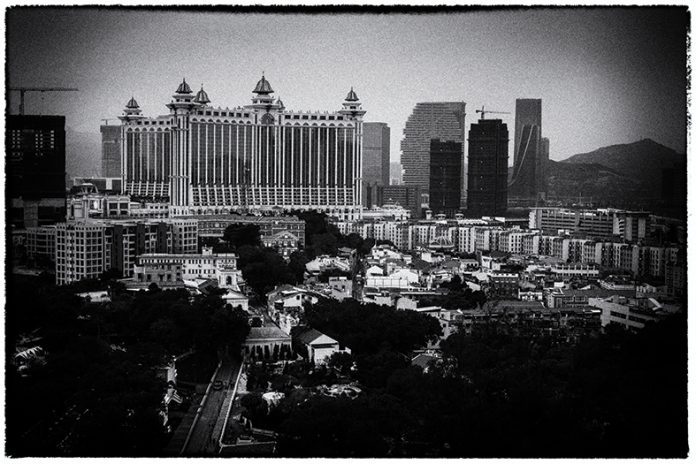The uncertainty is great – can mass market growth offset the foreseeable drop in VIP Baccarat? 2020 is now unknown, but the government believes it will not be worse than 2019.
MB Jan 2020 Special Report | IMF: from glory to recession
While macroeconomic forecasts for 2020 say it will be a second consecutive year of recession, the outlook for gambling revenue (essentially gross gaming revenue, GGR) is not so pessimistic.
There seems to be a contradiction here though, as Macau’s economy is essentially dependent on gambling revenues, but this difference in outlook is mainly due to the uncertainty that characterizes these times.
Let us begin with the usually conservative government forecasts.
For 2020, the latest budget prepared by Chui Sai On’s team is based on a revenue of MOP 260 billions, exactly the same as foreseen for 2019, and whose final value was not yet known at the time of this edition. The year 2018 ended with MOP 302 billions.
Banking group Morgan Stanley seems to be a little more optimistic, as it has reduced its 2020 estimates for GGR to 2 percent, compared to its previous estimate of 3 percent. “GGR growth could remain negative in the first half of 2020 unless VIP recovers”, Morgan Stanley analysts wrote last November. “For 2020, we estimate mass revenue to be up 11 percent, [with] VIP to go down 13 percent, and GGR up 2 percent (previously 13 percent)”, the Morgan Stanley team noted.
Fitch Ratings instead is forecasting a “low single-digit growth” for this year, according to Colin Mansfield, Fitch’s associate director, whose comments aired on CNBC.
Mr Mansfield sentenced: “We basically expect the VIP business to remain flat from where we are today. But we really see the mass market more on the longer-term positive that’s impacted from things like growing wealth creation in China and infrastructure improvement in the Greater Bay Area”.
The mass market seems to be the lifeline of gambling in Macau, but, as Fitch recently warned, this will only be visible “in the long run”, even though the mass market continues to grow double digits (up 17 percent by Q3) and is least affected by the risks to which the VIP segment is exposed”.
“The new tourist practice is that they spend less per visit” – Henry Lei

Given this scenario, what do concessionaires managers say?
Linda Chen, Vice Chairman and Chief Operating Officer of the Macau casino operator Wynn Macau Ltd, said to the GGR website that she is “not worried at all” with the ongoing contraction in the city’s VIP gaming sector, forecasting “a stabilised market” for the rest of 2019.
“I believe Macau is the best market in the world, so we continue to invest our capital in the territory”, Sheldon Adelson said in October.
The CEO and executive director of MGM China Holdings Limited, Grant Bowie, is also not pessimistic: “I think this process [the slowdown] has been ongoing for some time now. I think we’re all transforming. That’s what we were expecting to happen 10 to 15 years ago. Now we’re seeing it. I think this is ultimately a positive thing for Macau”.
“Assuming there will be a phase one resolution to the US-China trade war, I think that will give a lot of confidence to the travelling consumer that there is an end to this thing, [an improved] economy and a stabilization of the renminbi (Chinese Yuan). I think these are all positive impacts for Macau in the coming year”, is the opinion of Melco Resorts & Entertainment Chairman and CEO Lawrence Ho, during a recent interview with CNBC.
The two-digit GGR growth days seem far away. If 2020 is not negative, all will be satisfied.
More amount, less money
Macau visitor arrivals are expected to hit a record 40 millions in 2019, according to MGTO head, Maria Helena Senna Fernandes, but this will not prevent the Region from falling back into recession.
According to DSEC’s data, visitor arrivals have been strong in 2019. Compared to the same period last year, visitor arrivals have grown by about 21.2 percent in 2019 Q1, about 20.0 percent in 2019 Q2 and about 10.2 percent in 2019 Q3.
“The new tourist practice is that they spend less per visit as indicated in the Tourism Survey of DSEC”, Professor Henry Lei explained to Macau Business. “They come more frequently but spend less, as they are probably affected by the depreciated RMB, income condition and the purpose of their trips as well”, the Assistant Professor in Business Economics, Faculty of Business Administration, University of Macau added.
“As a result, an increase in the number of incoming tourists does not imply a big jump in tourism revenues”, the Associate Head of Department of Finance and Business Economics concluded.
“As the popular Chinese saying “旺丁不旺財” puts it, more customers do not necessarily bring higher revenue”, Professor Florence Lei, from University of Saint Joseph commented.
“My calculations found that real per-visitor spending has dropped by approximately 15.5 percent in 2019 Q1 and by approximately 19.6 percent in 2019 Q2 compared to the same periods in 2018”, the Coordinator for the Bachelor of Government Studies programme, School of Business and Law told Macau Business.
























